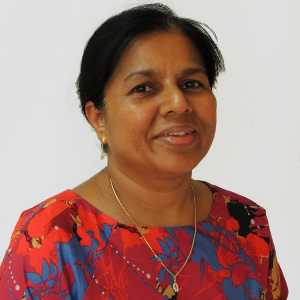Title : Dementia Care Model
Abstract:
Malaysia is rapidly ageing with declining number of younger age groups and the young old surpassing the other older groups. As dementia is a age related neuro-degenerative disease of the brain, more and more older people will be inflicted with dementia and this silent epidemic will soon surface out.
Dementia is a progressive disease and People with Dementia (PWD) over the years they will steadily decline in their cognitive function and become much dependent on caregivers. Global Deterioration Scale (GDS) designed by Reisberg et al 1982, is a 7-point rating instrument on staging the magnitude of cognitive decline and functional disability from the point of being normal.
Strategies for dementia care should offer services comprising full range of care covering all the various stages of dementia that is mentioned in the GDS.
Public education and public awareness programs are conducted so that seemingly normal elderly and as well young adults become aware of this dreadful disease so that elderly suspected of dementia get treated at an early stage to improve the quality of life for an extended period of time.
When the disease sets in, at the early stage apart from medication various non-pharmacological measures can be implemented like ‘Memory café’ for the PWD to be gainfully employed under supervision. This will give them a purpose in life and a sense of wellbeing.
As the disease progresses into a mild to moderate stage dementia specific ‘Day Care Centres’ are very useful for the PWD to be cognitively, physically as well socially stimulated. Day centres also offer respite for the caregivers who are burnt out with caregiving and offer opportunities for the caregivers to continue working for their livelihood.
During the later stage of the disease where caregiving at home is still possible ‘Dementia Home Care’ team comprising of doctors and allied health workers can provide required services. When caregiving at home no longer possible then ‘Dementia Specific Residential Care’ becomes an essential.
Apart from delivering care for PWD, caring and supporting the caregivers who play a vital role in care giving should be upheld with support groups and necessary training programs on how to cope with the disease. Finally, research niches on various areas of need for dementia care should be carried out not only for academic reasons but also to provide the policy makers evidence-based requirements for dementia care.
What will audience learn from your presentation?
• The world population is ageing, and dementia epidemic will become a reality in all parts of the world.
• Adequate services should be implemented to face the demands of dementia care before it becomes apparent.
• Offering services covering all through various stages of dementia will provide a holistic care for PWD.
• I was inspired by the Kumamoto Model of Care for Dementia in Japan, similarly some others would be motivated to carry out similar services.


